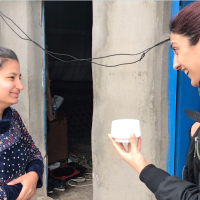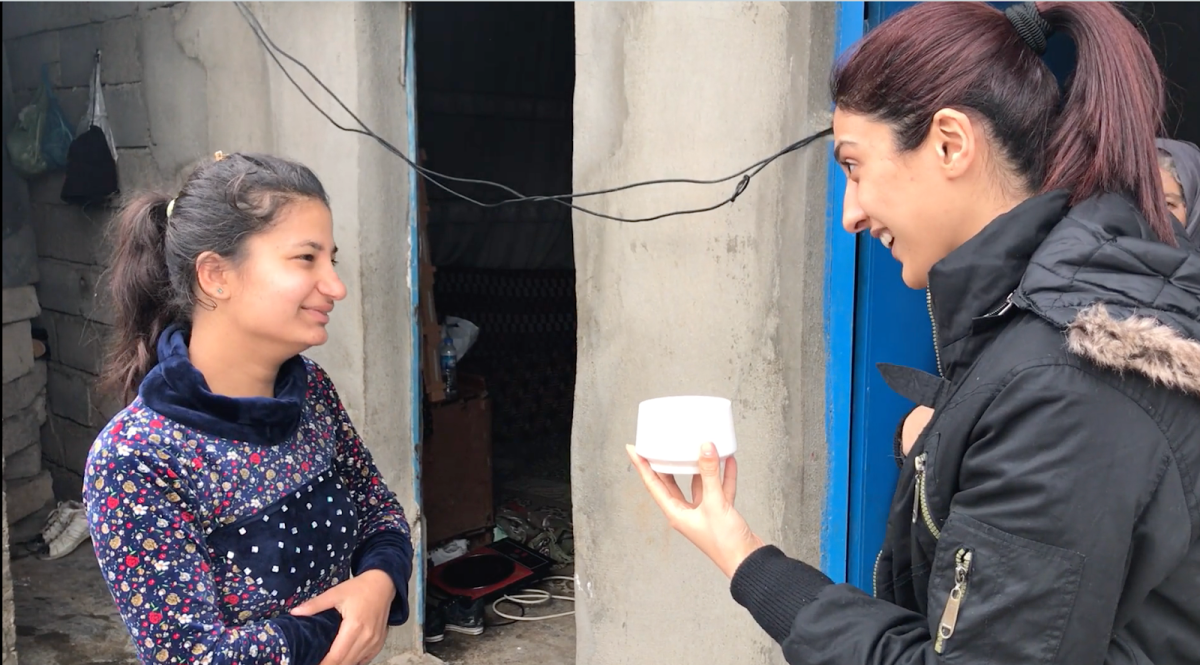In a far corner of Iraq is a refugee named Um Sana, a woman who is working to remake home by making candles.
Um Sana said she often feels negative and hopeless, but as she talks about the candles she is now making, you can see the passion and joy it is bringing to her life. When asked what she enjoys most about candlemaking, Um Sana talks about the happiness of working together with her daughters, and in her own home.
She knows her family will now have money and resources—they will not be dependent on the ever-dwindling supply of aid for refugees like them.
We’ve been working with Um Sana’s family as they create their business. She has three daughters, one of whom cannot hear or speak.
On a recent visit, Um Sana showed our team member Inas an array of perfectly made candles, but what caught Inas’s eye was the small one in the corner. It was made from the cut-off end of a plastic water bottle, with the leftover wax put inside. They had created it as a present for Inas.
She convinced them to keep it, but it was by far her favorite candle. While it was not the most beautiful, it showed the creativity and resourcefulness of the women who made it. That was far more important to Inas than any perfectly crafted candle. Inas encouraged Um Sana and her daughters to continue to have the confidence to use their minds and hands to try new things.
Um Sana’s daughter was in another room when we visited, removed from the conversation. When Inas brought her into the conversation, she instantly transformed from shy and self-conscious, to smiling and laughing—lighting up at the opportunity to interact be included in a world that often overlooks her.
Inas knew Um Sana’s daughter had helped her mom with the candles. So Inas sought to encourage her, too. Inas overcame language and auditory barriers, using her hands and facial expressions to bring her in to the conversation.
When we talk about loving others, we often talk about those who are very different from us religiously or ethnically, those who might be our so-called “enemies” or have a worldview very different from our own.
But loving others, including others, means those who might have different abilities, who we might have to work more intentionally to communicate with, to understand. It’s going to find them, to bring them in.
Love sees what the rest of the world overlooks—and leans in.


